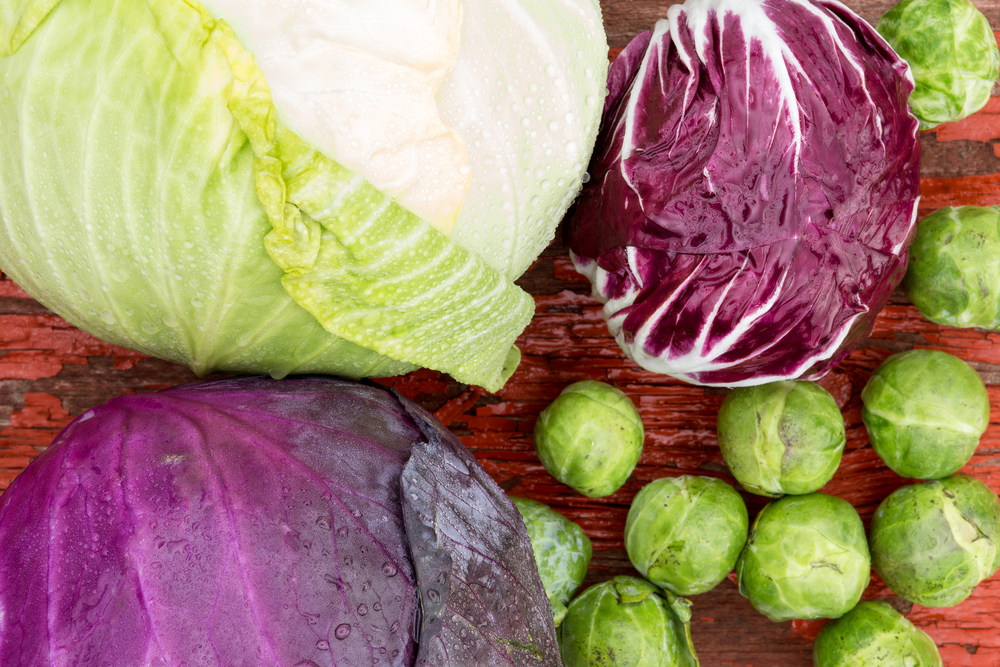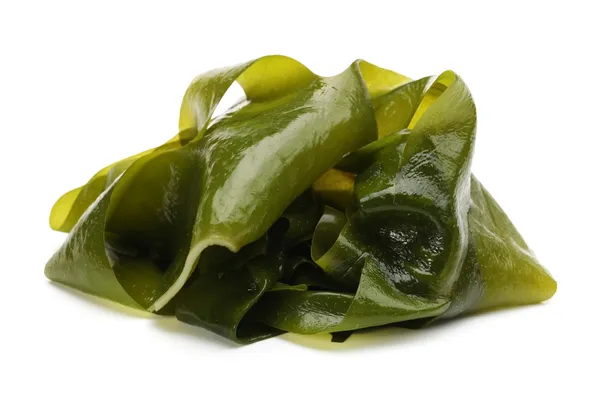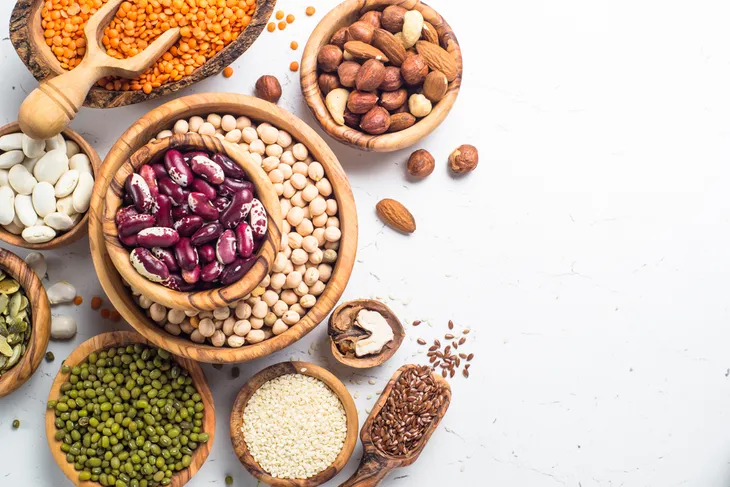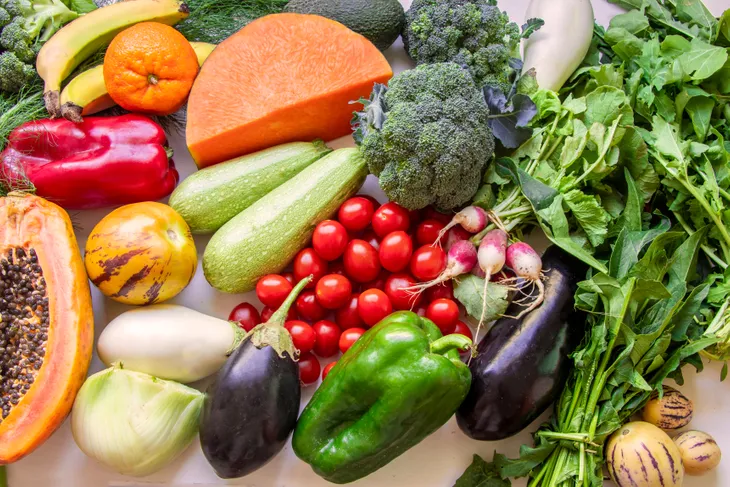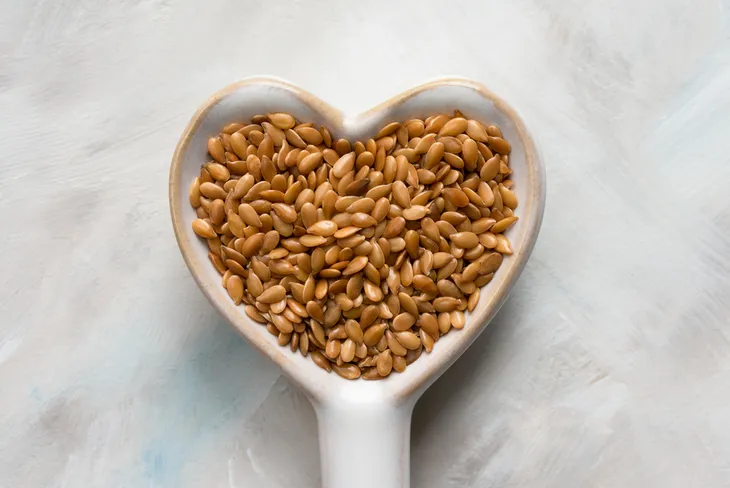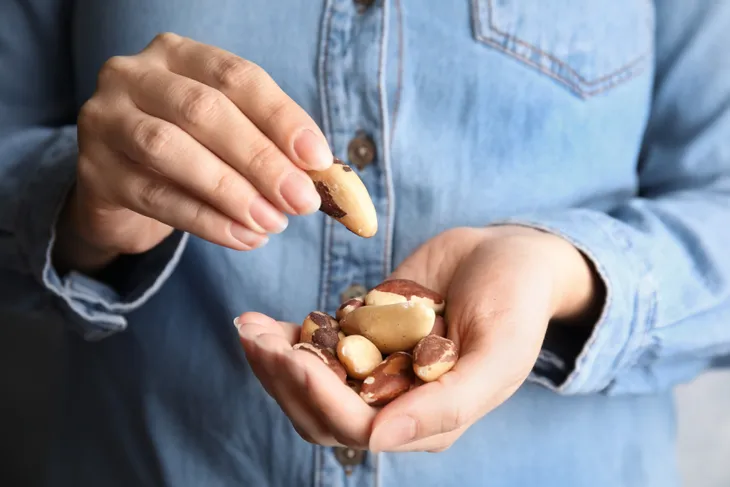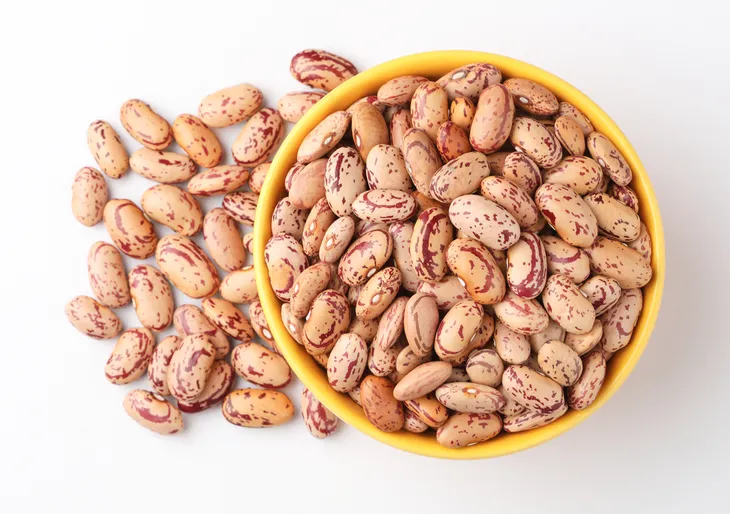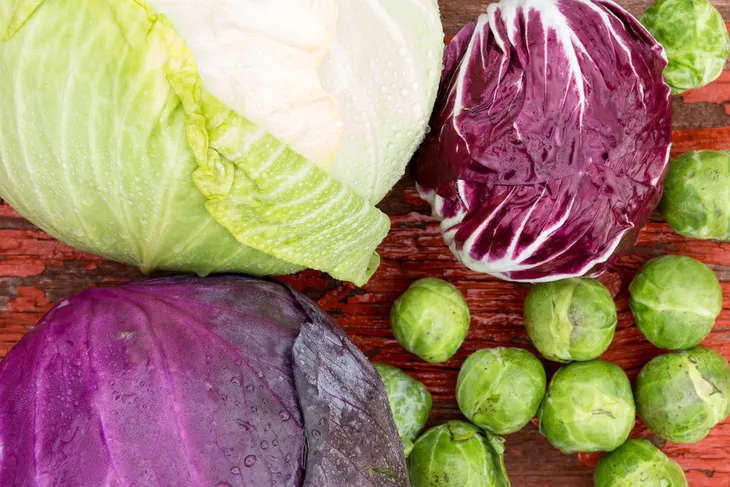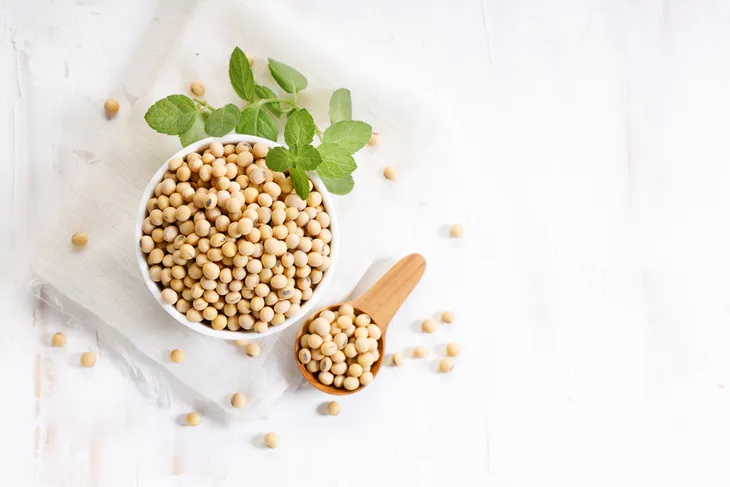Hypothyroidism is a condition where the body produces an insufficient amount of thyroid hormones, which Healthline says, “…help control your growth, repair and metabolism.”
This results in an underactive thyroid and can lead to symptoms such as fatigue, depression, weight gain, and hair loss. And while diet alone can’t cure the condition, certain foods contain nutrients that can help to improve thyroid function. But others can do more harm than good. Read on to learn which foods to eat and which to avoid if you have hypothyroidism…
Want diet & nutrition content delivered straight to your inbox? Sign up for our exclusive diet & nutrition newsletter!
Eat
Fish
Fish, especially those that are wild-caught, are an excellent source of omega-3 fatty acids, which Dr. Axe says are “essential for hormone balance and thyroid function.”
Additionally, the source indicates that, when balanced against the omega-6 levels in your diet, omega-3s can also “reduce inflammation and support healthy neurological function.” Try eating fatty fish like Alaskan salmon, Pacific sardines, and Atlantic mackerel once or twice per week to realize their full benefits.
Seaweed
It’s important to eat your greens, but in this case, particularly those from the sea, as seaweeds such as kelp, nori, kombu, and wakame are rich natural sources of iodine.
And iodine is an essential part of a person’s diet, especially in those who have an underactive thyroid. Why? Because, as MindBody Green explains, “If you have insufficient levels of iodine, it becomes a rate-limiting step in the production of thyroid hormones and you’ll inhibit your thyroid function.”
High Fiber Foods
A diet high in fiber—around 30- to 40-grams per day—is often recommended for those with hypothyroidism as it “improves regularity and can help you to maintain a healthy weight,” says LiveStrong.
While whole grain foods such as breads and cereals are among the most well known ways you can boost your intake, you can also get lots of fiber from beans, lentils, seeds, and many fruits and vegetables.
Fruits and Vegetables
Not only are fruits and vegetables good sources of fiber for people with an underactive thyroid, but they are also rich in a variety of antioxidants, vitamins, and minerals that Dr. Axe says “are necessary for combating free-radical damage and lowering inflammation.”
Additionally, the source says fruits and vegetables are beneficial for “supporting digestive health, brain function, heart health, hormone balance and a healthy weight.” While most varieties are okay, cruciferous vegetables and certain fruits like peaches, pears, and strawberries should be consumed in moderation.
Sprouted Seeds
Not only are seeds an excellent source of fiber for those with hypothyroidism, but they also offer a type of omega-3 fatty acid called ALA, which DavidWolfe.com says “plays a vital role in proper hormonal balance and healthy thyroid function.”
Additionally, having enough of these fats in your diet can help with brain function, mood management, and keeping blood sugar levels stabilized in order to maintain a healthy weight. Try adding chia, hemp, or flax seeds into smoothies, oatmeal, or baking in order to boost your intake.
Probiotic Rich Foods
We should all eat a diet that includes probiotic-rich foods because they’re great for our gut which plays a surprisingly large role in our overall health. Dr. Axe encourages people who struggle with hypothyroidism to eat foods like “kefir, organic goat’s milk yogurt, kimchi, kombucha, natto, sauerkraut, and other fermented veggies.”
The source says these foods will help improve our gut and create a healthy environment that balances out our microflora bacteria. “This reduces leaky gut syndrome, nutrient deficiencies, inflammation and autoimmune reactions.”
Brazil Nuts
Nuts are one of those foods that are actually really healthy for us as long as we eat them in moderation, and unsalted of course. For example, brazil nuts are a great way to get the daily recommended dose of selenium, “a trace mineral that’s highly concentrated in the thyroid gland and plays an essential role in thyroid hormone production,” writes prevention. To get enough selenium for the day, all you need to do is eat two brazil nuts!
“Autoimmune conditions like Hashimoto’s can lead to increased inflammation,” says Lisa Markley, RDN, co-author of The Essential Thyroid Cookbook to Prevention. “Selenium can help calm or suppress some of that through its antioxidant capabilities.”
Just remember not to overdo it on the selenium. You should never have more than 400-micrograms a day. Health.com points out that too much of this nutrient can cause things like bad breath, hair loss, discolored nails and even heart failure.
Beans
Beans and legumes are a great source of protein, along with many other important nutrients and minerals. They can also boost our energy levels which is important for someone with hypothyroidism who often feels drained of energy.
Avoid
Cruciferous Vegetables
As previously mentioned, certain vegetables known as ‘cruciferous vegetables’ are best consumed in moderation or, in some cases, avoided altogether. These include greens like broccoli, kale, and Brussels sprouts, as well as other veggies like cauliflower, radishes, and turnips.
Why? Because Everyday Health says “they may interfere with the production of thyroid hormone if you have an iodine deficiency.” And WholeNewMom.com adds that they’re often referred to as ‘goitrogenic foods’ because they can “cause an enlargement or goiter of your thyroid.”
Gluten
Gluten sensitivity is common among those with hypothyroidism, but in many cases people are unaware of the issue. As a result, it often goes undiagnosed, and as DavidWolfe.com explains, “An undiagnosed gluten sensitivity can cause inflammation, nutrient deficiencies and hormonal problems.” Julie Ching, registered dietitian recommends testing for gluten intolerance before eliminating gluten from diet.
If you have an underactive thyroid, it may be best to avoid gluten altogether. That means steering clear of foods made from wheat, barley, and rye. Also, to be safe, be sure to read product labels carefully, and look for items that clearly state they are gluten free.
Sugar
While sugary foods like chocolate, candy, and doughnuts are certainly delicious, they are best consumed in moderation, or avoided altogether, especially among those with hypothyroidism.
Everyday Health explains that this is because having an underactive thyroid can slow down your metabolism, making it “easy to put on pounds if you aren’t careful.” Additionally, sugar can also “contributes to hormonal disturbances, fatigue, mood changes, and worsened depression,” says Dr. Axe.
Soy
According to Everyday Health, “There’s long been concern over the potential negative effects that certain compounds in soy — called isoflavones — may have on the thyroid.” Particularly, because some research has found that excess intake may increase a person’s chances of developing hypothyroidism.
While other studies have found that, if you already have a thyroid problem, consuming soy “may interfere with your ability to absorb thyroid medication.” Therefore, it may be best to moderate your intake, or avoid soy-based products altogether—including tofu, edamame, miso, and foods made with soy protein isolate.
Refined Flour Products
It should come as no surprise that products made with enriched wheat flour—like white breads, pastas, and cereals—are best avoided, especially among those with an underactive thyroid.
Not only do they lack nutritional value, but Dr. Axe says they “negatively impact hormone levels and can contribute to weight gain.” If you do choose to eat wheat, the source recommends choosing “100 percent whole, ancient grains instead (like quinoa, buckwheat, etc.).”
Fatty Foods
Fatty foods are never a healthy or wise choice when it comes to our health, but let’s face it, we all indulge once in a while (some more than others). For those who are dealing with hypothyroidism, it’s best to steer clear of these foods at all times.
Everyday Health talked to Stephanie Lee, MD, PhD, associate chief of endocrinology, nutrition, and diabetes at Boston Medical Center and an associate professor at the Boston University School of Medicine in Massachusetts who warns that fats can disrupt the body’s ability to absorb thyroid hormone replacement medicine and the thyroid’s ability produce the hormone.
The source advises people to steer clear of fatty foods like butter, meat, and of course, anything fried.
Processed Foods
We’ve all fallen victim to the convenience of processed foods. Despite all of our knowledge on how bad processed foods are for us, a lot of people in North America continue to fill a large portion of their everyday diet with processed and packaged foods. A lot of the time it’s out of convenience. We all live such busy lives sometimes it’s easy to just throw some frozen food in the oven and serve it for dinner, or pack our kids lunch with pre-packaged foods. Unfortunately, these foods are really bad for us, particularly people who have hypothyroidism.
“Processed foods tend to have a lot of sodium, and people with hypothyroidism should avoid sodium,” says Ruth Frechman, RDN, a dietitian in the Los Angeles area and spokesperson for the Academy of Nutrition and Dietetics. People with an underactive thyroid are already at risk for high blood pressure, and a high sodium diet just increases that risk.
To avoid eating heavily processed foods or foods high in sodium, read the nutrition label. Always choose the lowest sodium option available. “People with an increased risk for high blood pressure should restrict their sodium intake to 1,500 milligrams a day, according to the American Heart Association,” writes Everyday Health.
Coffee
A hot cup of coffee is an important part of many people’s morning routine. We use it as a way to help wake ourselves up, to soothe us on a cold morning, or even as a treat to enjoy over some good conversation. Unfortunately, if it seems true, it probably is! Coffee isn’t good for our thyroid, particularly people with hypothyroidism because it blocks the body’s ability to absorb hormone replacements.
“People who were taking their thyroid medication with their morning coffee had uncomfortable thyroid levels, and we couldn’t figure it out,” says Stephanie Lee, MD, PhD, to Everyday Health.
Alcohol
Most of us like to indulge in alcohol once in a while, especially during social gatherings, but it can wreak havoc on our thyroid hormone levels and even affect the body’s ability to produce these hormones. “Alcohol appears to have a toxic effect on the thyroid gland and suppresses the ability of the body to use thyroid hormone,” writes Everyday Health. “Ideally, people with hypothyroidism should cut out alcohol completely or drink in careful moderation.”
